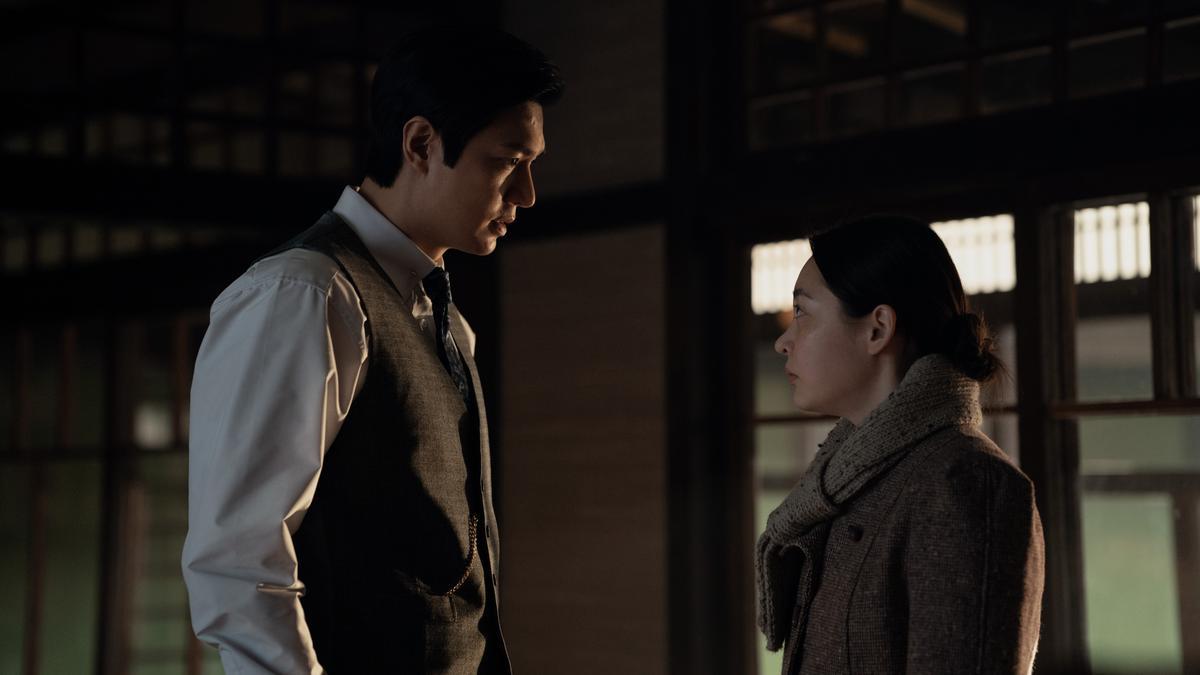
Early in the first episode of season two of “Pachinko,” American fighter planes scatter pamphlets over Osaka, urging its residents to petition the emperor to ‘halt this brutal war.’ The year is 1945, and the air is thick with reminders of the Second World War and the ominous threat of bombing. This tension reverberates through every corner of the city and weighs heavily on Sunja and her small family. The specter of uncertainty and disquiet looms large as they strive to survive in these perilous times.
ALSO READ: Why Korean epic ‘Pachinko’, starring Lee Min-ho and Kim Min-ha, is timely
Based on Min Jin Lee’s best-selling novel, “Pachinko” first premiered its eight-episode season in 2022 to much acclaim. The adaptation diverged from the book’s linear narrative, opting instead to oscillate between the 1940s during the tumultuous era of World War II, chronicling Sunja’s experiences in Korea and Japan, and the late 1980s where her grandson Solomon Baek confronts his own set of challenges.
In the first season, we saw Sunja grappling with an unexpected pregnancy and adjusting to life in Osaka after fleeing Japanese-occupied Korea with her husband, Baek Isak (Steve Sanghyun Noh). Season two finds her facing even greater challenges. Years have passed since Isak was imprisoned for aiding laborers in their fight for fair wages. Her brother-in-law Yoseb (Han Joon-woo) toils in a Nagasaki factory, while Sunja and her sister-in-law Kyunghee (Jung Eun-chae) struggle to provide for their children amid worm-infested rations. With steely resolve, Sunja declares, “I am good at selling,” as she risks her life to sell rice wine in the black market to safeguard her family’s well-being.
Yoon Yuh Jung portrays an older Sunja in the 1980s, and the passage of time is skillfully depicted. Solomon’s father, Mozasu (Soji Arai), is on the verge of opening a glittering new Pachinko parlor, while Solomon himself is engrossed in rallying investors for his new venture. After leaving his previous firm and botching a critical business deal, Solomon’s journey in 1989 is underpinned by his desire to make a fresh start, deeply influenced by the story of a senior Korean immigrant who refuses to sell her land.
“Pachinko” benefits from a meticulous, almost languid storytelling pace, granting it the depth and gravitas the source material deserves. Amid an era where shows face the constant threat of abrupt cancellations, “Pachinko” remains measured and unhurried even in its new season.
. The first episode effectively portrays the changed landscape for its characters over a time leap. Sunja’s portrayal by Minha Kim emanates a palpable sense of helplessness meshed with indomitable determination to provide for her sons. The cast brings fresh energy with Kim Kang-hoon and Eunseong Kwon, playing her sons Noa and Mozasu respectively.
Mozasu’s resilient spirit contrasts sharply with Noa’s subdued demeanor, highlighting the cumbersome weight of the world he bears, especially in a society that subjects zainichis (Koreans in Japan) to unrelenting discrimination. As Noa endures the taunts of his classmates, Solomon in 1989 is also caught in the throes of a racially-charged outburst from a Japanese bakery owner towards his grandmother Sunja (Yoon Yuh-Jung). “I’m from Yale University,” Solomon shouts in a poignant reminder of the enduring nature of racial prejudice. Jin Ha’s portrayal of Solomon is of a man on edge, embodying a ticking time bomb desperate for a professional resurgence. His journey diverging from the book adds extra layers of suspense and intrigue.
Season one also delved deeply into the character of Koh Hansu, a fish broker with significant connections, whose relationship with Sunja catalyzes the entire story. Lee Min-ho delivered a career-best performance as Hansu, with a memorable backstory set against the 1923 Great Kanto Earthquake, directed by Kogonada. Hansu remains a pivotal presence in season two, watching over Sunja and her children from the shadows.
Showrunner Soo Hugh has often remarked on the universal themes of “Pachinko” – love, loss, grief, and survival that span generations. The series skillfully avoids the pitfall of becoming an indulgent melodrama, maintaining a restrained yet deeply affecting narrative. While the scope and scale are grander than ever, “Pachinko'”s somber and evocative storytelling sails smoothly into its second season with a captivating first episode, a promising harbinger for the subsequent episodes.
Currently streaming on Apple TV+, new episodes of the second season of “Pachinko” are released every Friday, inviting viewers to continue this deeply enriching journey.
World cinema / reviews / entertainment (general)












